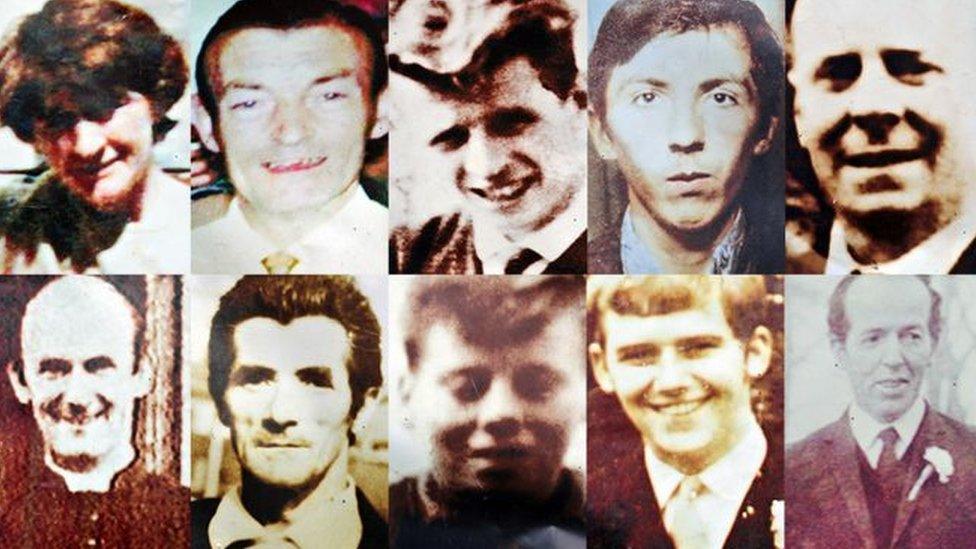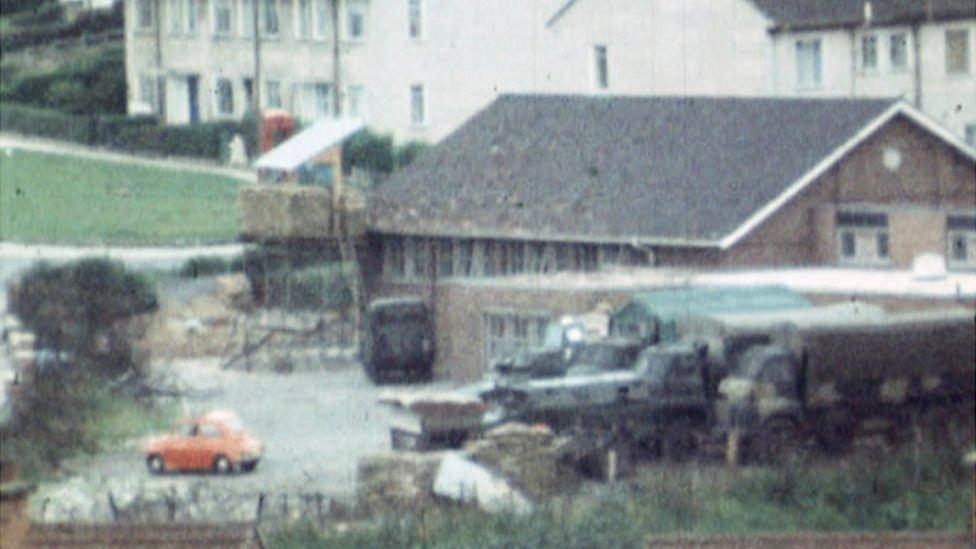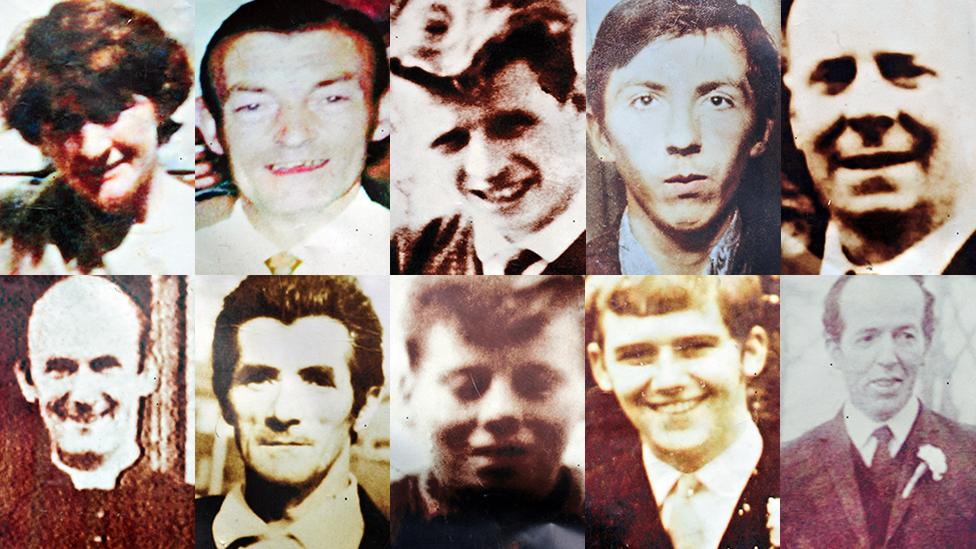Ballymurphy inquest: Evidence halted over soldier memory changes
- Published

An inquest is examining the deaths of 10 people killed in shootings at Ballymurphy in August 1971
Evidence from a former soldier to an inquest into the deaths of 10 people in west Belfast in 1971 has been suspended over questions about changes to his memory of what happened.
The soldier referred to as M365 was a sergeant in C Company, 1 Para as it advanced down Whiterock Road in Ballymurphy on 11 August that year.
John Laverty, 20, and Joseph Corr, 43, were shot dead that morning.
M365 confirmed he had previously given evidence to the Bloody Sunday Inquiry.
Ten people were fatally shot - including six on one day - in the Ballymurphy area in August 1971 after the introduction of internment without trial in Northern Ireland.
M365 told the court in Belfast on Tuesday he could remember nothing of the day the two men were killed in Ballymurphy and while he did recall some names of other soldiers he could not say which platoon any of them had been in.
But M365 was also asked at length why he was changing a detail from his previous statements.
He had previously stated that he was a member of 9 Platoon, the first platoon down Whiterock Road that day, but now thought he might have been in 8 Platoon instead.
'Bitter about soldiers' treatment'
The Coroner Mrs Justice Keegan has decided to give solicitors for the witness time to explain to her which documents or information had caused M365 to adjust his evidence to the inquest at such a late stage.
The court was told that two Historical Enquiries Team (HET) investigators met M365 in 2012 and considered him to be "bitter" about the way Bloody Sunday soldiers had been treated.
The HET investigators felt that M365 probably knew who had shot the two men in Ballymurphy.

Soldiers from the Parachute Regiment were based at Henry Taggart Army base
But M365 said that was not the case and he had merely been "annoyed" during the HET interview because the investigators had turned up without warning.
Earlier on Tuesday, the court heard from another soldier present on the day.
Referred to as M371, he was also a sergeant in C Company, 1 Para.
He told the court he acted as a bodyguard to his commanding officer and although he had heard gunfire he had not seen anyone firing or either of the two casualties.
'Base under fire'
Later the court heard 16 statements from unidentified soldiers first taken in 1971.
They described their base at Henry Taggart Hall coming under gunfire from between 500 and 700 rounds from various weapons.
The soldiers described firing back with their self-loading rifles and .303 rifles, hitting many of the gunmen.
They described five or six gunmen on the waste ground where four people were fatally shot and several other gunmen firing from other areas.
The families of Joan Connolly, Noel Phillips, Joseph Murphy and Daniel Teggart have always denied that they were gunmen.
No weapons were found at the scene.
It was revealed in court that because the HET was disbanded in 2014 it never finished its inquiry into the Ballymurphy shootings.
A statement from HET investigator Dave Hart mentioned that in their investigations into other shootings by soldiers they sometimes concluded that the Army had "made mistakes" and that some families had been given formal apologies.
In other cases they concluded the Army had acted "reasonably".
- Published11 June 2019

- Published11 May 2021
